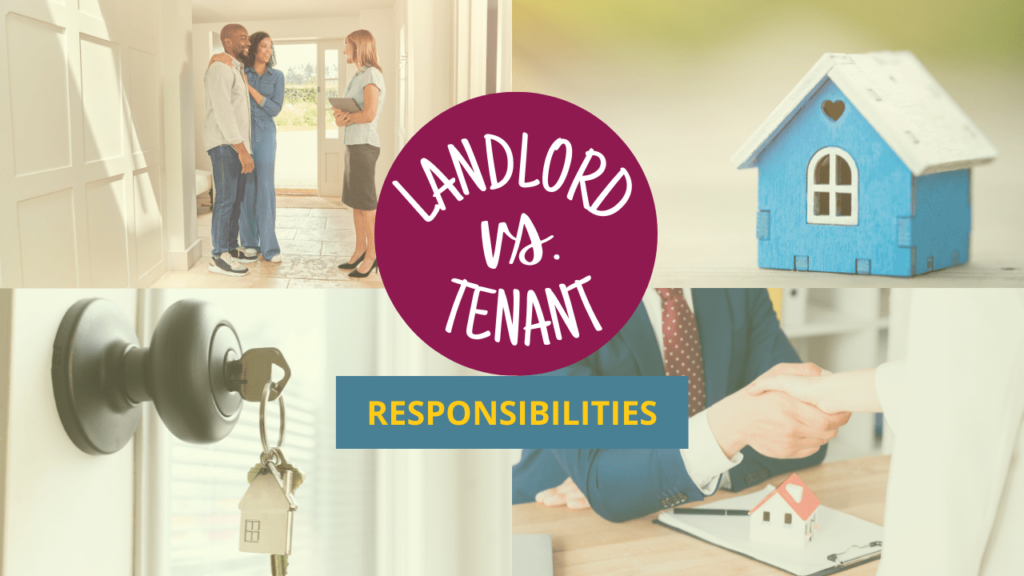
You likely did not become a landlord without understanding most of your general responsibilities. When you rent out a Las Vegas property, you’re required to keep it safe, habitable, and well-maintained. If something breaks, you fix it.
Things can get confusing, however, if you don’t have a lease agreement in place that’s detailed and specific. Some things can be expected of tenants, such as air filter changes and light bulb replacements. You’ll have to decide how you want to handle yard care and utilities. What if the home you’re renting out has a swimming pool?
Maintenance is often what we think about when we’re talking about the responsibilities of landlords and tenants, but there are other obligations, too. For example, landlords are responsible for understanding and complying with all state, federal, and local rental laws. Tenants are responsible for following the terms of the lease agreement and making the property available for vendors and inspections.
Whether you’re new to owning rental property or an experienced investor, you need to understand your own responsibilities and those of your tenants. You also need to make sure your tenants understand your expectations and the requirements spelled out in the lease agreement.
Las Vegas Landlord Responsibilities
Let’s start with the basics. As a landlord in Las Vegas, you’re required to provide a safe, clean, and healthy living environment for the tenants renting your home. The local building codes and state habitability laws provide you with the standards you need to follow for construction, maintenance, and repair times. Make sure you understand the urgency of responding to repairs that affect a property’s habitability. You cannot put off a water issue for two weeks.
Habitable living isn’t something you provide once and then forget about. It’s an ongoing responsibility, and throughout the term of the lease agreement, you’ll need to monitor and maintain:
- Building exteriors, whether it’s a single-family home, condo, or unit in a multi-family building.
- Structural elements, including foundations, walls, floors, and the roof.
- Electrical systems.
- Plumbing systems.
- HVAC units, including furnaces, air conditioning units, and proper ventilation.
- Pest control.
You’re legally required to disclose a history of environmental hazards that might put your property at risk now or in the future, including lead paint, bed bugs, mold, and asbestos.
In addition to providing a well-maintained and habitable rental home, you also have to provide a safe home.
How do you do that? In a few ways.
First, make sure all the locks work on doors and windows. Change those locks between tenants so unknown people don’t have a key to the house. You’ll also want to inspect for hazards and safety issues before a tenant moves in. The exterior lighting should be adequate and you don’t want any potholes or cracks in pavement, parking areas, or walkways. Tighten up handrails that may be loose.
Always ensure the smoke detector and carbon monoxide detector is working.
Landlord Responsibilities Include Adequate Notice to Enter
You’ll have a responsibility to provide your tenants with ample notice of entry when you need to get inside the home. Nevada law requires that you provide at least 24 hours of notice before entering the property. If there’s an emergency, of course you’ll do what’s required to protect your tenants and your property. But, for a routine inspection or a repair, you’ll need to put your intentions in writing at least 24 hours before you arrive.
Las Vegas Landlords and Normal Wear and Tear
As a landlord, you’re also responsible for the general wear and tear that occurs at your property during a tenancy.
Naturally occurring deterioration happens to every rental property, regardless of who is living there. You may notice that the walls in your rental home have worn and chipped paint. Small holes will be noticeable from where tenants hung pictures or clocks or mirrors. Some of the furniture may have scuffed floors and walls as well.
You could discover some staining or wear on the countertops and other surfaces. In the bathrooms, there will be chipped and aging caulk around toilets and tubs. These are not things you should expect your tenants to pay for. It’s evidence of normal wear and tear, and it’s your responsibility as the property owner.
Carpets will be worn in high traffic areas and there might be some minor stains. If the carpet wasn’t brand new when your tenants moved in, the deterioration will be even more pronounced. If you have linoleum on your floors, that’s going to start peeling up in the corners and you may notice some discoloration.
Tenants are responsible for any damage they cause, but after they’ve moved out and you’re evaluating the condition of your property, you have to plan to repair these wear and tear items during the turnover process.
Understanding and Complying with Laws
As a landlord, you have to know the laws that impact your tenants and your property. This is not an exhaustive list, but you must make sure you have a working understanding of:
- Fair housing laws
- Differences between pets, service animals, and companion animals
- Security deposit laws
- Eviction laws
- Fair credit reporting laws
Be aware that these laws change fairly frequently. Not only do you have to understand the requirements as they are currently enforced, you’re also responsible for staying up to date on the changing legal landscape.
Las Vegas Tenant Responsibilities
Las Vegas tenants have their own set of responsibilities.
For starters, they are expected to pay rent on time. Your rent collection policy should be explained in great detail, including:
- How much rent is due
- When rent is due.
- Whether there’s a grace period and when rent is officially considered late.
- Late fees and other penalties that may be in place.
- How rent should be paid and where.
Tenants are also responsible for helping you maintain the property. It should be kept clean and they can be responsible for things like filter changes. Some repairs you can likely walk them through, such as garbage disposal resets. `
Tenants, in general, are responsible for setting up their own utility accounts. In some multi-family properties, landlords prefer to pay the utilities themselves and then bill tenants back based on usage. However, for single-family rentals, tenants should be able to establish and maintain their own accounts.
You’ll have to decide how to handle landscaping if you have any outdoor space. Some landlords will require their tenants to take care of the landscaping or lawn care or keep up with the maintenance of pools and hot tubs. It might be better to hire professionals for these tasks. You can include the cost in what you charge for rent.
Same with pools. You can say tenants are responsible for maintaining the pool, but then you have to worry about whether they’re using the right chemicals or putting your property at risk. Hire pool professionals and include what you pay them in the rent.
Las Vegas Tenants Must Make Timely Repair Requests
A major responsibility of your tenants is to let you know as soon as possible when your property needs maintenance. This should be explained clearly to them before the lease begins. It should be reinforced throughout the tenancy.
Deferred and unreported damage gets expensive. It gets more complicated. You want to avoid it, and the best way to avoid it is to ensure your tenants understand that you want to hear about all repair needs right away.
Tenants and Property Damage
Your tenants are responsible for any damage that they cause or their guests cause. Property damage can be an accident, but even if it’s an accident, it’s the tenant’s responsibility. Something might break due to neglect or abuse. If a tenant’s child was using the dishwasher door as a trampoline and it breaks, that’s the tenant’s expense to incur.
You’ll deduct any costs to repair a tenant’s damage from their security deposit. Make sure you’re collecting excellent documentation and providing receipts and invoices to show that the amount you withhold from the security deposit pays only for the damage caused by the tenant, and not any normal wear and tear.
Las Vegas Lease Agreements
 Lease agreements should reflect all of your responsibilities and your tenant’s responsibilities. When you include these things in the lease, your tenants can refer to the document when they have questions about who should be doing what.
Lease agreements should reflect all of your responsibilities and your tenant’s responsibilities. When you include these things in the lease, your tenants can refer to the document when they have questions about who should be doing what.
A strong lease agreement will stipulate who is responsible for utilities and whether there are any pool or landscaping responsibilities that land with the tenant. If you hire professional services for things like pools, landscaping, and pest control, the lease should also reference that.
Good lease agreements protect you and your property. They also protect your tenant. Make sure the lease you sign with your residents is detailed about anything that might come into question throughout your relationship. It will cut down on confusion and ensure that nothing gets missed.
We can help you figure out what you need to do and what your tenant needs to do. We can also provide a solid, effective lease agreement before you rent out a Las Vegas property. Please contact us at New West Property Management. We’re passionate about the services and value we provide to the owners and investors who trust us with their properties. Our team expertly manages residential rental homes in Las Vegas and throughout Clark County, including Henderson and North Las Vegas.
